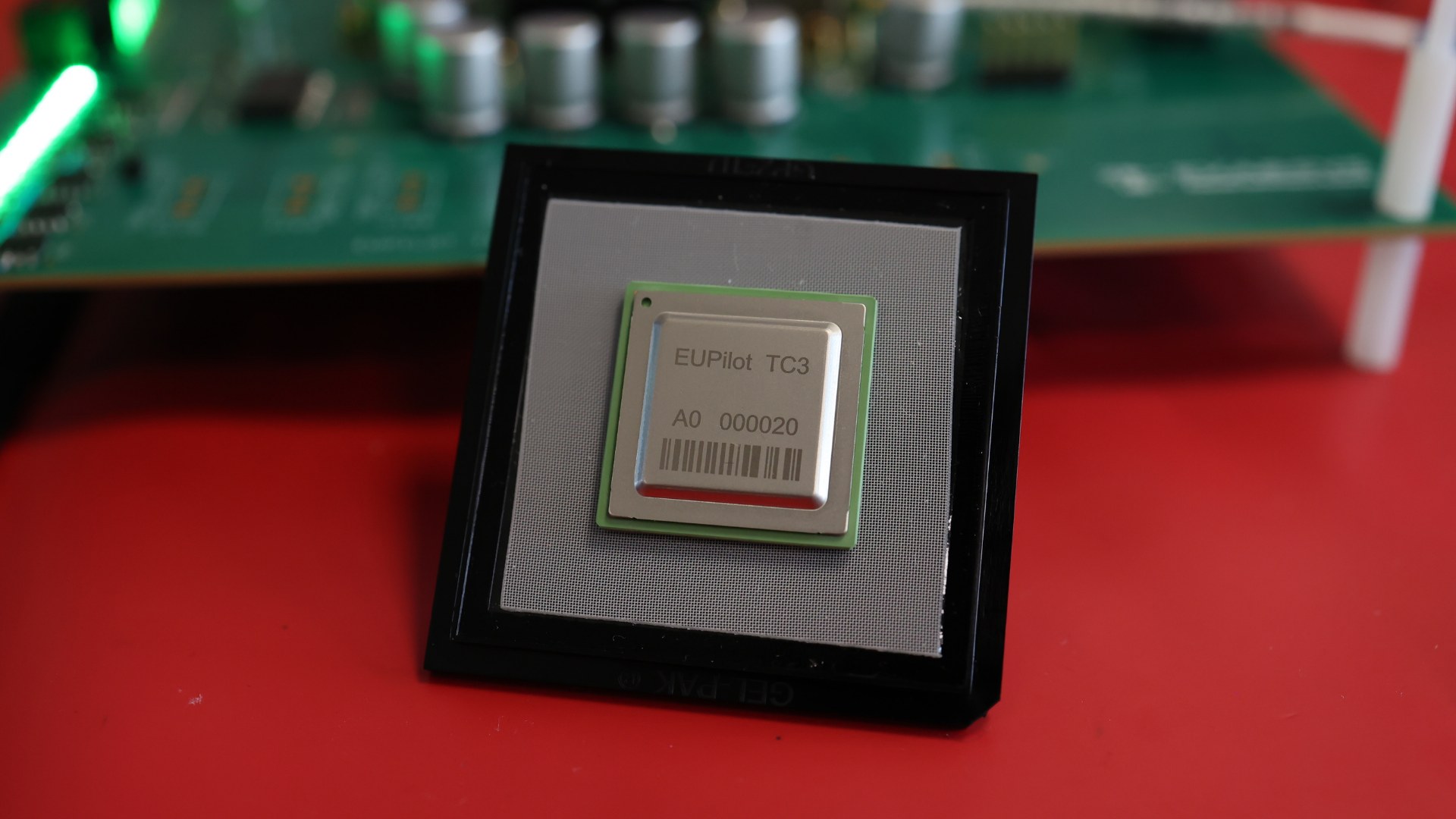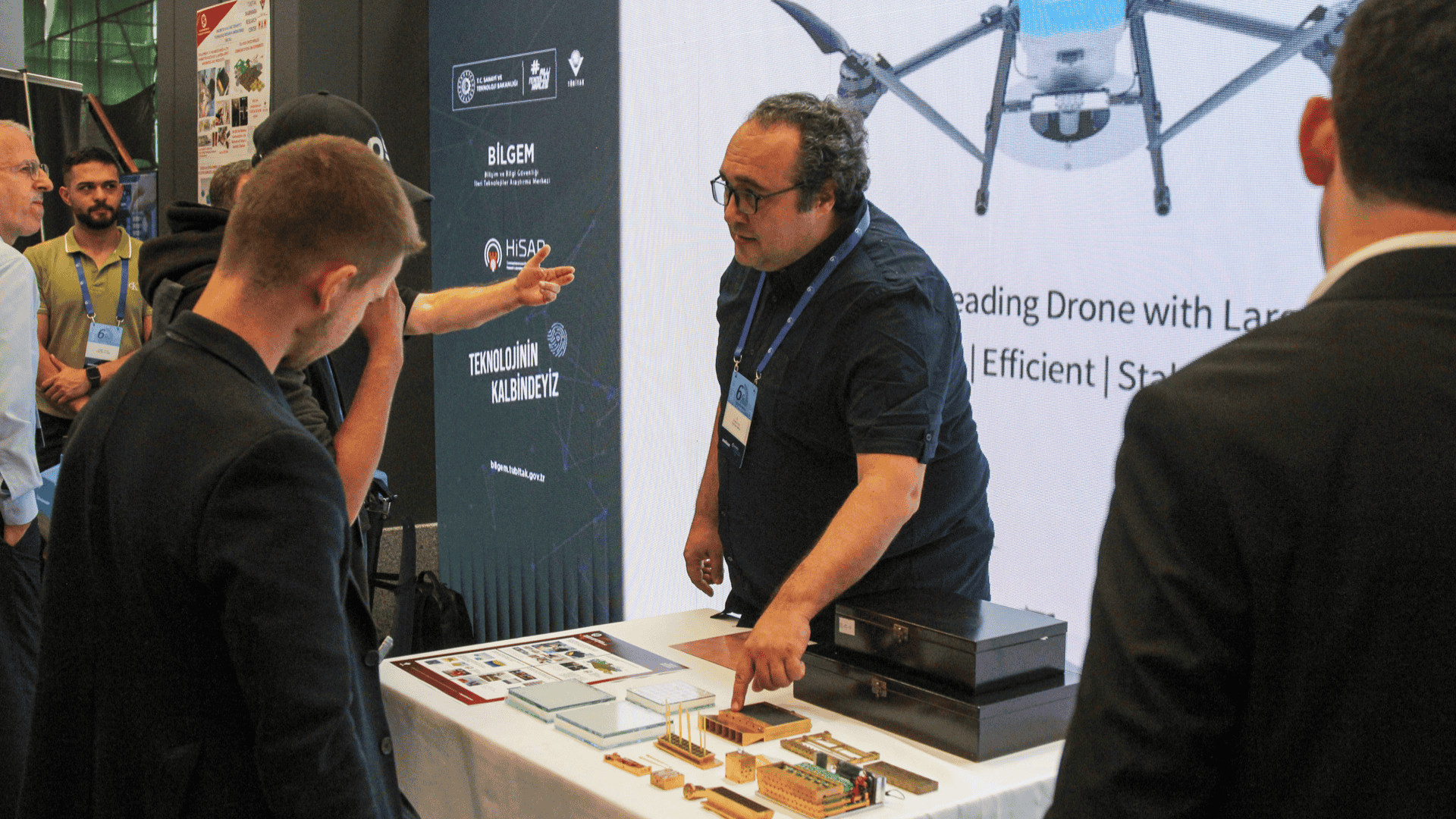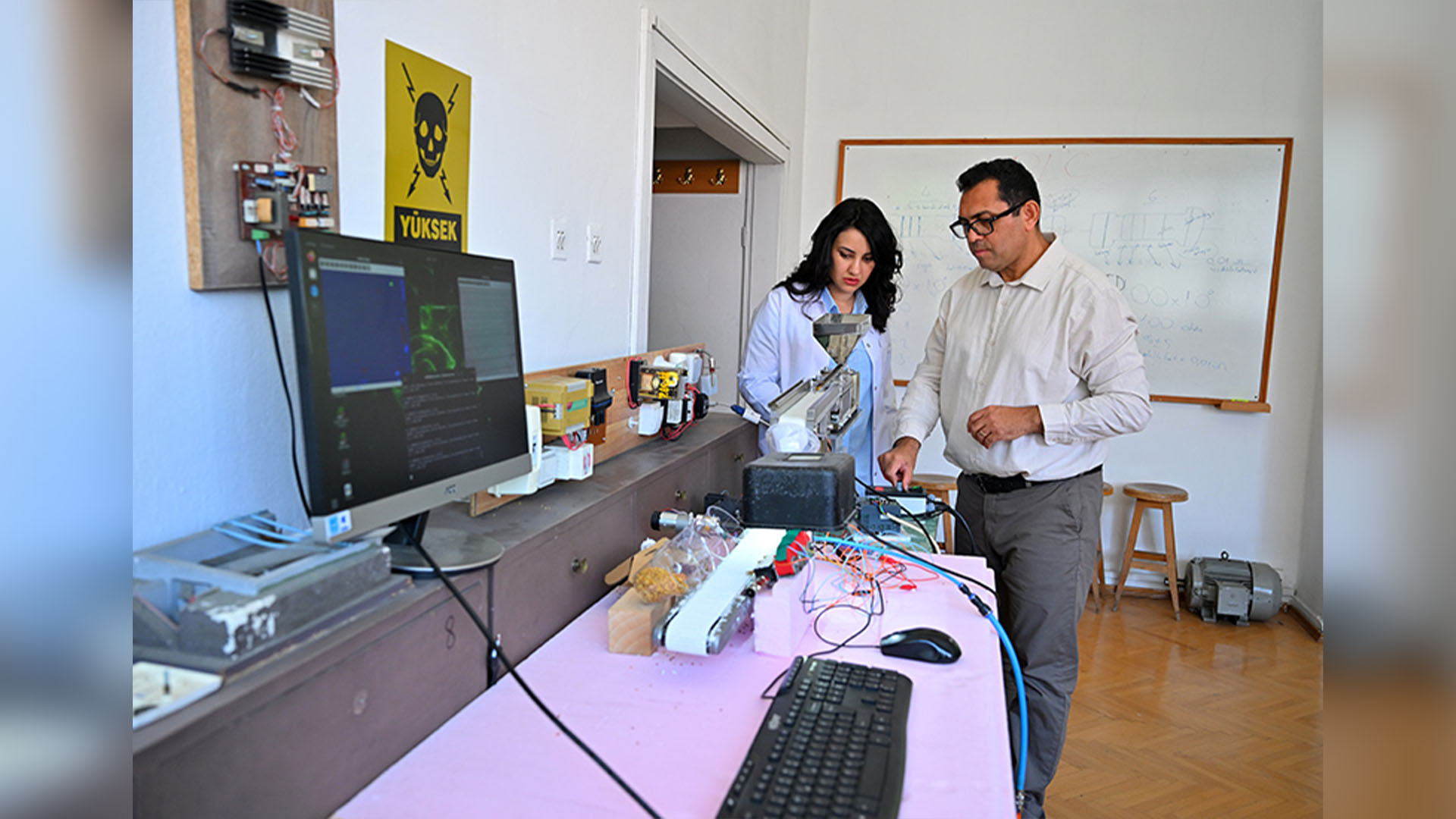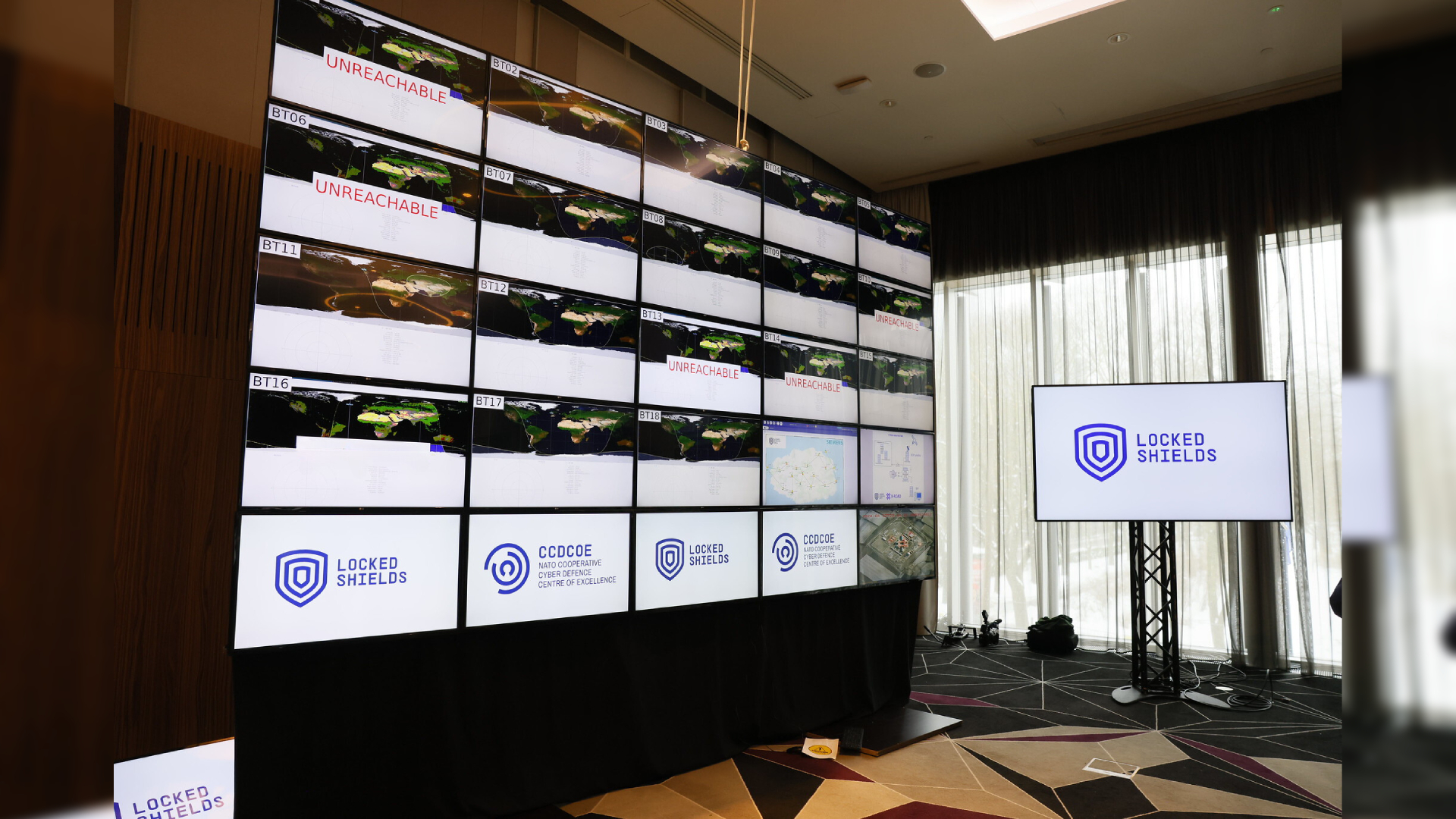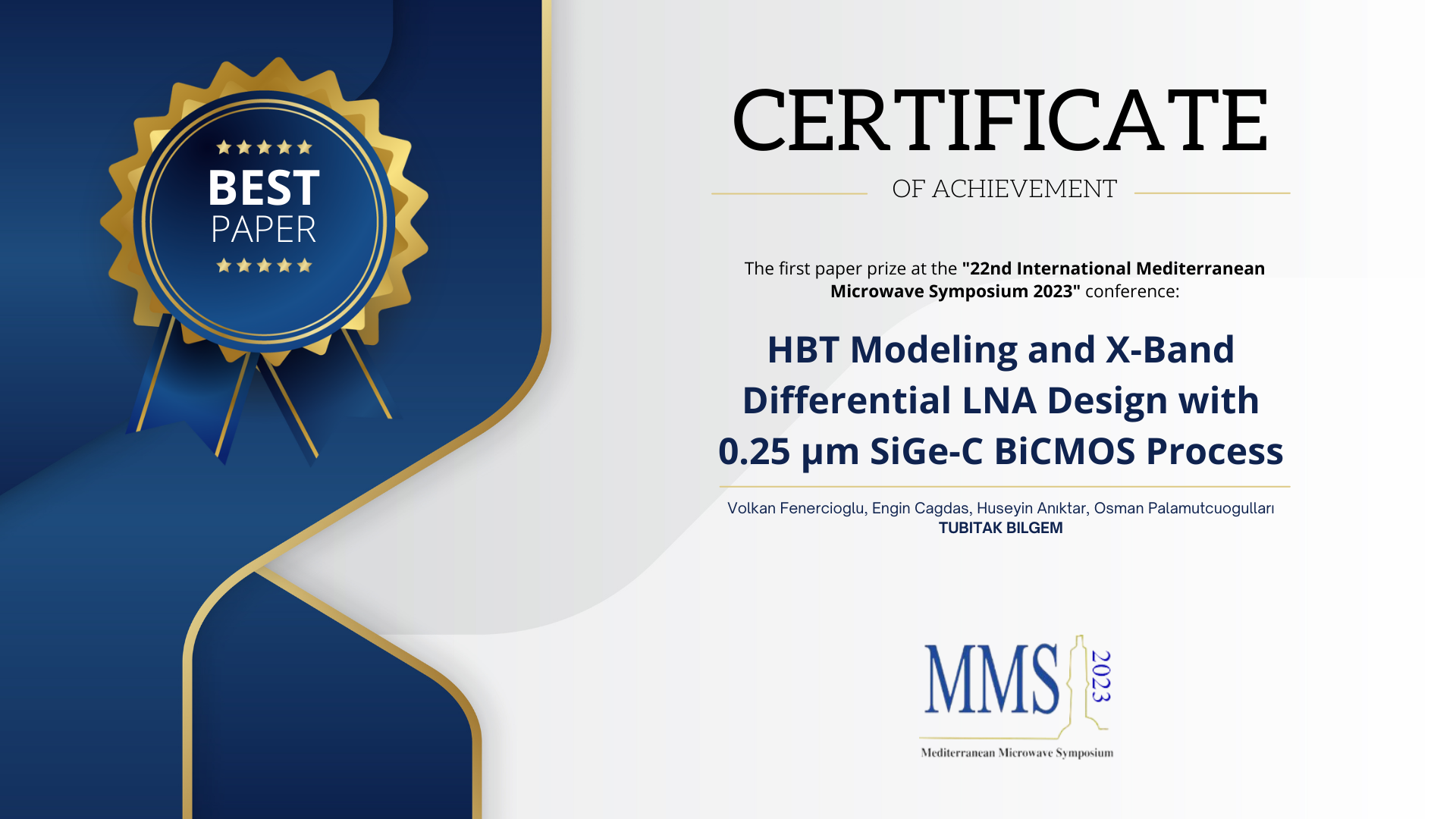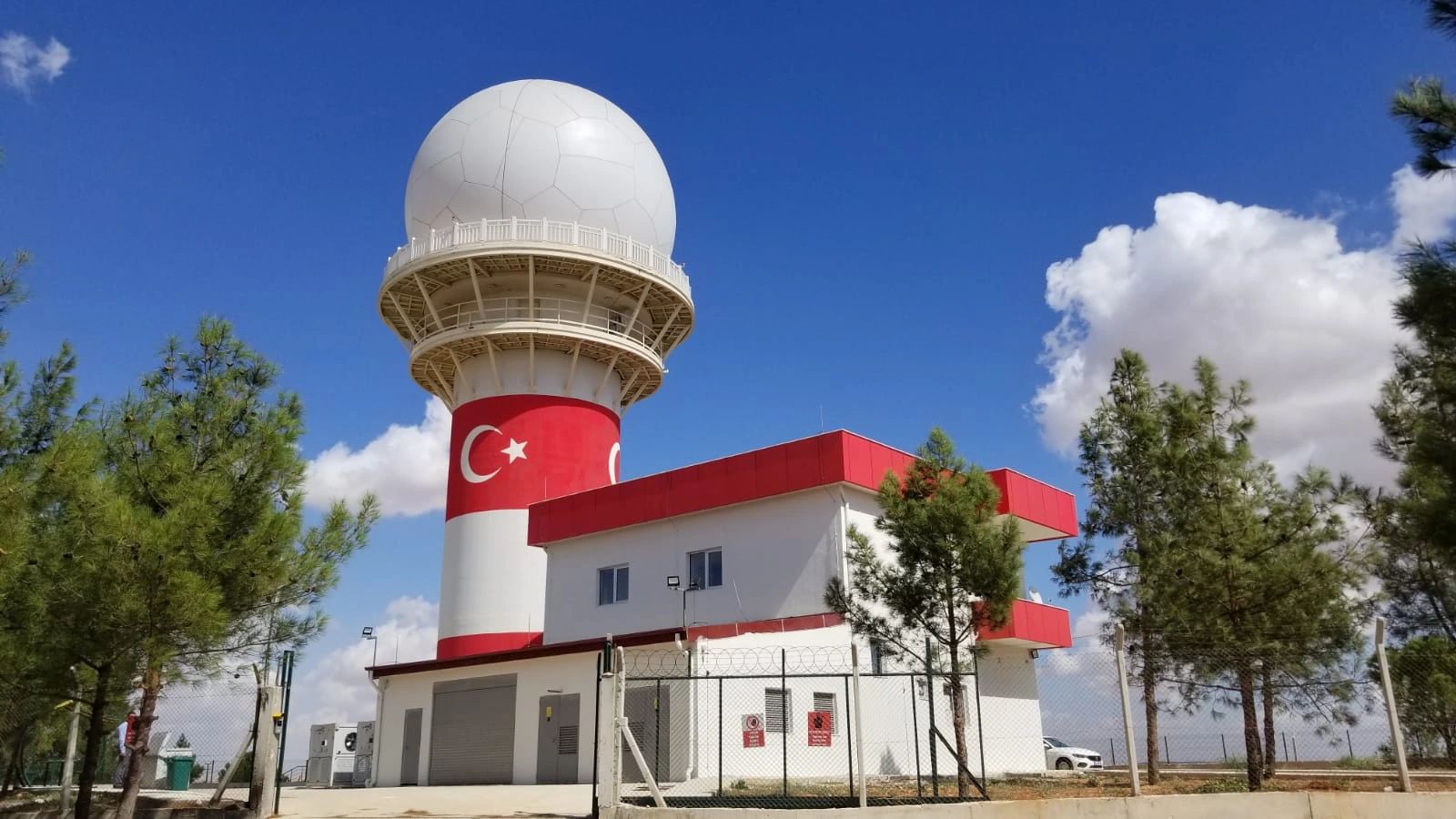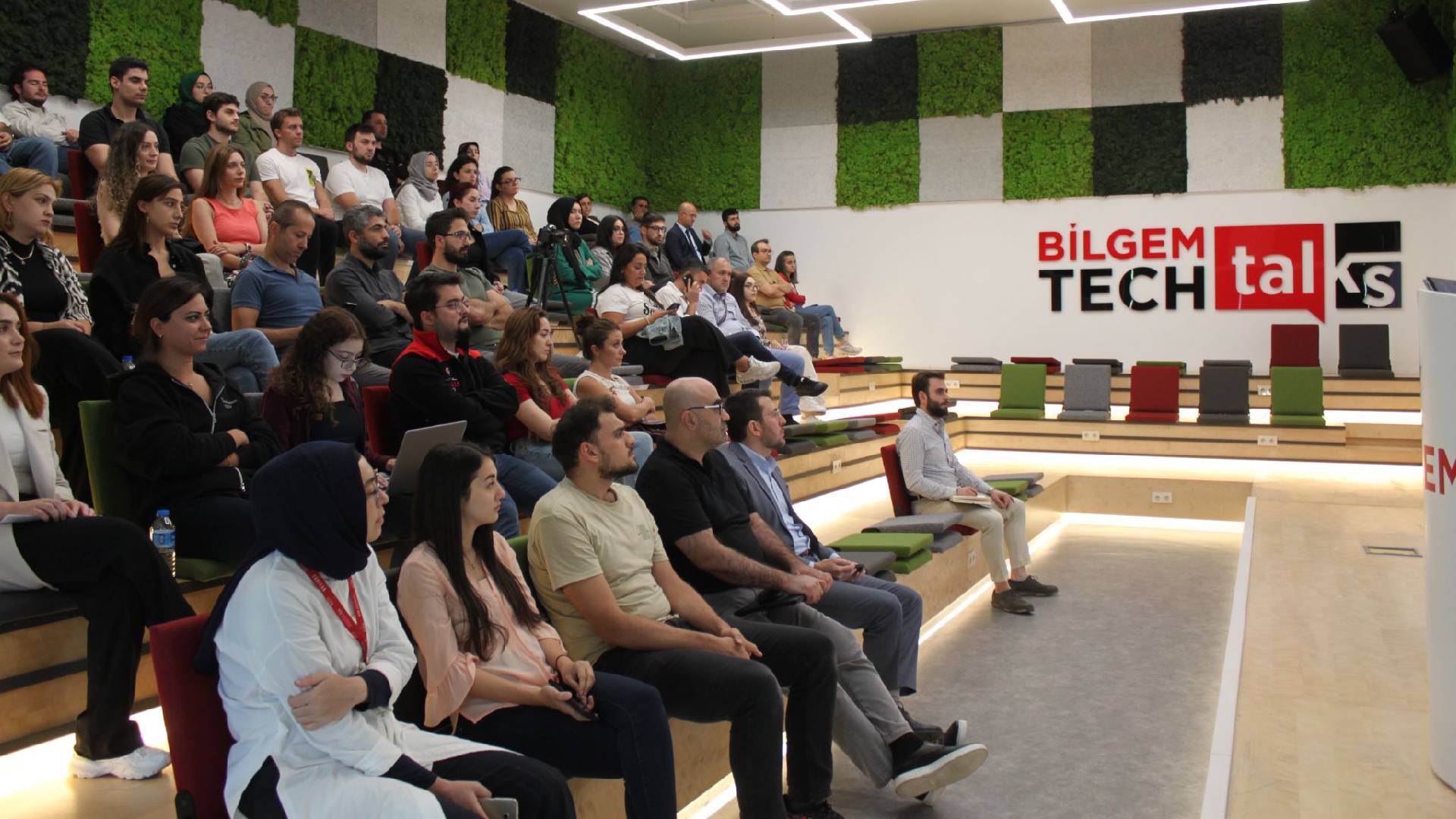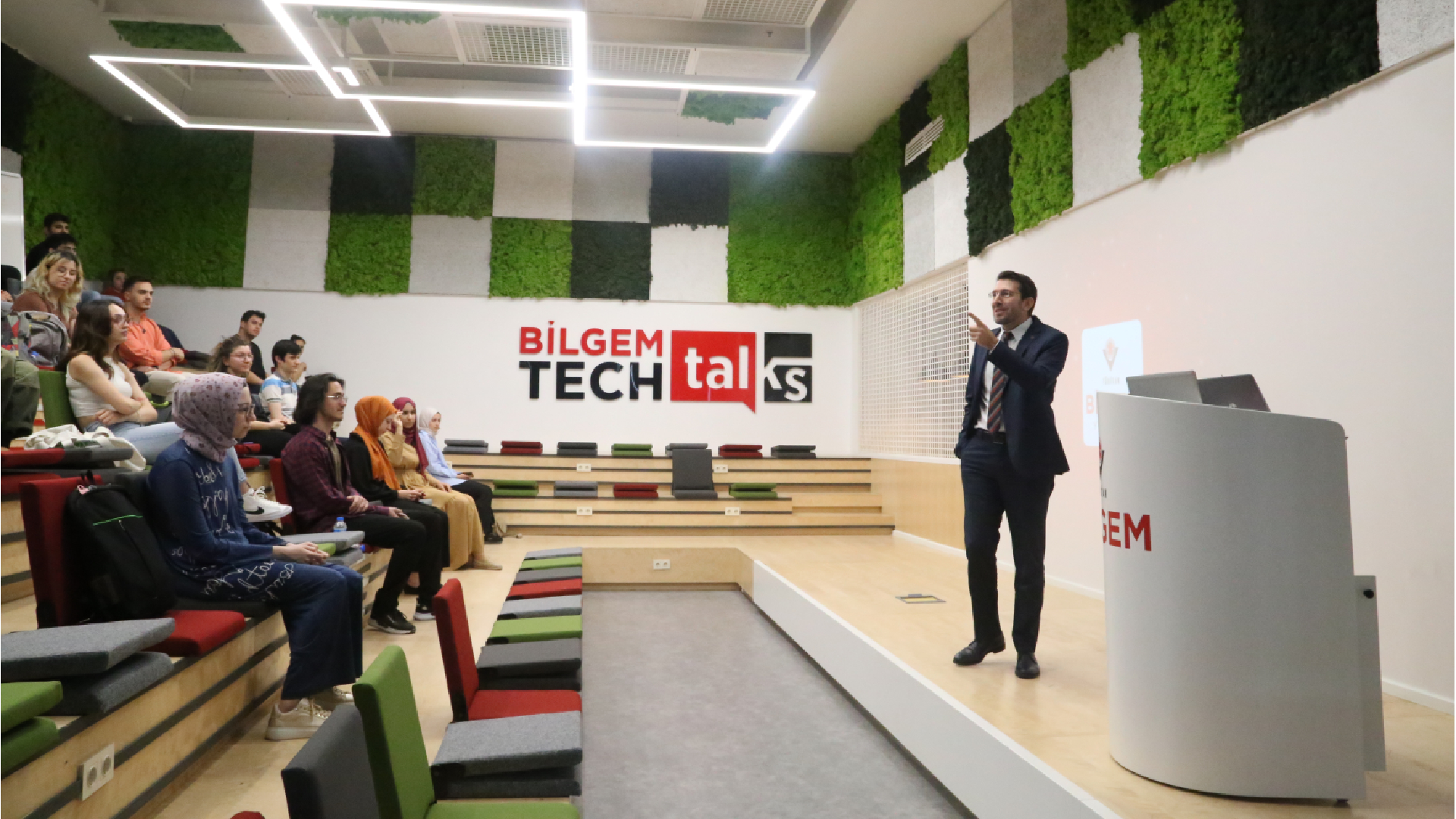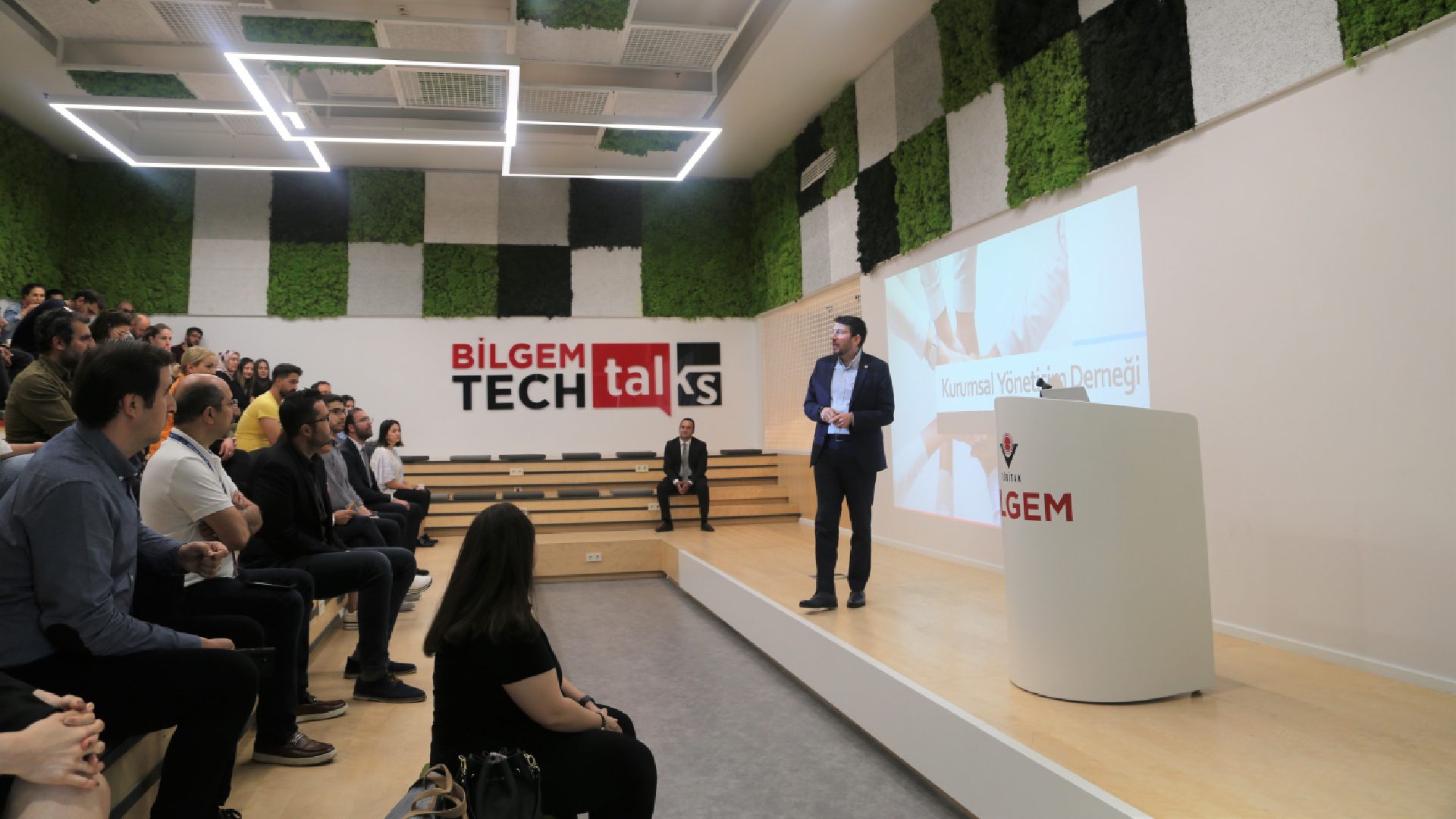The first test chip has been successfully produced as part of The European Pilot Project, in which TÜBİTAK BİLGEM plays a significant role. The band-gap reference circuit, temperature and voltage sensors, and test control digital block design, developed by our Integrated Circuit Design and Training Laboratory (TÜTEL) team, have passed all tests with flying colors.
This milestone marks the successful completion of the first test chip using 12nm FinFET technology. The design of the band-gap reference circuit, temperature and voltage sensors, and test control digital block on this chip was executed by the TÜTEL team at TÜBİTAK BİLGEM.
The EUPILOT Project, which produced this 12nm FinFET technology-based test chip, is notable for being the first fully European-designed and manufactured open-source test chip for High-Performance Computing (HPC) Systems and High-Performance Data Analytics (HPDA). The project involves 19 partners, including TÜBİTAK BİLGEM.
Within the scope of the project, the test chip includes RISC-V based accelerators that support PCIe Gen 6.0 and CXL 3.0 interfaces. These HPC chips are crucial for processing large datasets at high speeds, providing essential solutions in fields such as scientific research, artificial intelligence, and industrial applications.
About the EUPILOT Project
The EUPILOT Project is a collaborative effort led by the Barcelona Supercomputing Center, bringing together 19 partner organizations, including TÜBİTAK BİLGEM. The project's goal is to advance technology in the fields of High-Performance Computing (HPC) and High-Performance Data Analytics (HPDA) within Europe, strengthening Europe's leadership and technological independence in these critical areas.
The Importance of HPC
High-Performance Computing (HPC) is essential for processing vast amounts of data and performing complex computations at incredible speeds. Typically implemented through supercomputers made up of thousands of computing nodes, HPC plays a vital role across various sectors, from scientific research to industrial applications.
How HPC Systems Work
HPC systems are designed with a highly integrated architecture where computing, networking, and storage components operate in unity. Computing servers form clusters and work in parallel, connected to data storage systems. Ensuring each component operates at peak performance is key to the overall efficiency of the HPC infrastructure.
Applications of HPC
HPC technology is used across a wide range of industries, from scientific research to industrial production. The ability of HPC to process data rapidly accelerates technological advancements in areas such as the discovery of new energy sources, weather forecasting, and medical diagnostics. Additionally, HPC is used in the media industry for processing special effects and supporting live broadcasts.
The test chips, incorporating the integrated circuit subsystems designed by the TÜTEL team, were delivered to researchers and successfully passed all subsequent tests. These designed blocks are set to be integrated into the hardware accelerator chip.
For more details: https://tutel.bilgem.tubitak.gov.tr/projeler/eupilot/


